Coronavirus (Covid-19): Sell It All
Just Do It.
You know you’ll feel better after you scratch that itch…
SELL IT ALL!
Who knows where this will end? Your brother-in-law who took a biology class twenty years ago said that we might all go to the great tax haven in the sky – so it must be true!
We could wake up tomorrow and RBC or Telus could be worth nothing!
This is a time for instincts. Experts could be wrong – or the expert that you Googled and decided to read because the headline fit your worldview – could be right!
And your instinct – as you “watch your retirement go up in flames” – is to sell now. Salvage what you can. The stock market is rigged anyway – sell it all, put the money in a mattress and let the suckers take the loss.
Severe Acute Respiratory Syndrome Coronavirus 2 (aka: SARS-CoV-2, THE Coronavirus, novel coronavirus, Covid-19) has come for your portfolio – and you had best get out of the way immediately!
Don’t listen to your investment advisor. You pay them for their advice during the good times, not when the markets are obviously collapsing. I bet they’re yanking their money out faster than people are yanking toilet paper off the shelves – while telling you to just sit tight and watch your nest egg evaporate in a haze of oil wars and quarantines.
If you were about to get started with investing, or had a large lump sum to invest – definitely don’t start now! Are you crazy?! Investing as the whole world’s economy falls apart? Clearly you are a rookie who has no idea what they are doing.
It’s Simple – Sell Now and Invest at the Bottom
For those of you who are advanced traders (you know who you are) you understand the tragic economic opportunity here. Just sell now (“close to the top”) and buy back in at the bottom. In a year or two, when the markets start to rebound, and you can clearly see a recovery in those fancy charts – that’s when to invest.
Afterall, all of the smart people on those 24/7 business news channels say that you, “Don’t want to catch a falling knife.”
I’m not sure what that means, but it sounds bad!
Protect what you have now – what you have worked so hard to build the last ten years – and then get back in when the going is smooth again. It’s common sense when you think about it.
Even better – why not get started with shorting the market by using option trading?! It’s like learning to ride a bike with training wheels as you basically can’t screw up in this market. You watch the Big Short, study Brad Pitt, and you are good to go.
Seriously Though…
If you’ve made it this far, hopefully you’ve realized that the above was meant to be tongue-in-cheek.
The tragic seriousness of the virus that threatens to overwhelm the world’s hospitals is self-evident. Perhaps I shouldn’t embrace gallows humour at a time such as this. But if not now, when?
First and foremost, we should all address the fact Covid-19 will exact a sad toll on many families. This is obviously more important than portfolio performance.
From a purely economic perspective, there are obviously a lot of people who think that this virus will have a very dramatic impact.
For my part, when I sat down, opened my discount brokerage account, and made a DIY investment plan many years ago – I anticipated the world and the world’s companies/stocks encountering many shocks between that day and when I withdrew my last investment dollar. While there was no way to anticipate a uniquely terrible strain of virus during this specific time period, it really doesn’t change the fundamentals that you can learn about when you sign up for our Newsletter.
Here’s The Known Unknowns
If you make the decision to sell investments right now or to wait for the “market bottom”, you’re essentially saying that you know the answers to these questions:
1) How many people will this virus hospitalize and/or kill over the next 12-24 months?
2) What will the economic impact be when anywhere from 10,000 to 52,000,000 (1% fatality rate x 70% infection rate predicted by German Chancellor Angela Merkel) mostly senior citizens are removed from the world economy?
3) How will panic at the loss of loved ones and the shrinking of investment portfolios affect people’s consumer behaviour and investing sentiments (“animal spirits” for all you econ majors)?
4) How will government intervention affect everything? Will a payroll tax cut help people who are out of work? Will negative interest rates just cause more panic? Will tax-fuelled bailouts help restore faith in the economy or add to the panic as indebted countries only curb their future spending abilities?
5) Will there be runs on the banks as people panic and lending dries up?
6) How long will OPEC and Russia decide to continue their “pipeline measuring contest”?
7) How long will schools and entertainment options be closed – and how much consumption will that affect?
8) If we’re being honest, the list of “unknown unknowns” is probably longer than this list of “known unknowns”, since I’m just a business teacher who likes to read, and while I have watched “Billions” I am not in fact a hedge fund manager. The aftershocks of something like Italy’s economy collapsing and a political push to drop out of the EU (just a random example) – are completely unpredictable, but not implausible. There are so many potential ramifications caused by those little strains of virus!
Here’s the Basic Economic Truth
Look… Either:
1) These fears are mostly overblown. We’ve faced WAY more challenging problems than this new flu bug. This isn’t a World War. It isn’t even tuberculosis or drug addiction. China has already figured out how to beat this thing and we just need to follow suit.
People’s spending is just going to be delayed for a bit. Sure the NBA is cancelled now, but when entertainment comes back online, people are going to be going stir crazy, and spend all of that pent up entertainment and travel budget. After all, once we develop herd immunity to this bug, there is nothing stopping us from travelling wherever we want, right?
PLUS – all the governments are going to step in to save this thing. Politicians aren’t going to let the voters (or non-voting citizens in some cases) think that they are doing nothing. So they’re going to do what all responsible adults do: Throw money at it! They’re going to bully their federal banks into cutting interest rates, and they are going to bailout any big companies that need bailing out. The money for it will simply be borrowed from the next generation, and they’re too young to stop us!
A year from now this will mostly be in the rearview mirror. A few of us will very sadly have to mourn grandparents who never managed to kick their smoking habit – but that emotional pain will have very little effect on the world of business. Buy now – buy low – and reap the benefits as the panic recedes by the fall or next Christmas.
Or
2) Covid-19 is the “Black Swan” event that popped the bubble in a market that was WAY too overinflated. The politicians’ mishandling of this crisis will continue to cause panic. There will be aftershocks that include many bankrupted small businesses, a possible bond bubble, and many more. Oh – and if you don’t know what a “Black Swan Event” is – then you’re in more trouble than you realize. This might make the 2009 crash look like small potatoes.
Airlines – done.
Tourism – done.
Banks – probably done when panic is done with them.
That’s all before we get to the fact that Canada’s stock market is going to be uniquely crippled due the fact that our entire oil sector is about to go bankrupt. It doesn’t take a rocket surgeon to figure out that when the Saudis and Russians are competing to see who can produce a barrel of oil for less than the price of a Happy Meal – Canada’s $60-per-barrel oil companies are going to go down the tubes.
How much are a few dump trucks and an industry’s tears worth?
That number is what Canada’s oil company stocks will now fall to.
That will all cause a spin-off effect as everyone will stop buying everything, hoard their money, businesses will fire more people, and the few lenders that are left out there will refuse to lend money to anyone. There will be no escaping this economic death spiral.
We could easily be looking at a great depression that takes more than a decade to recover from!
Even worse – the computer algorithms that now control much of the market are going to sense this momentum and exponentially increase the slide of the markets. If you don’t know what a computer algorithm has to do with the value of Rogers or Shaw, then you clearly are one of the guppies that the sharks are about to swallow up, bud.
What I’m Really Doing
See what I did there?
Man, am I ready to be a TV prognosticator. Just tell me what your viewers want to hear, and I’ll construct the argument that allows them to feel vindicated – then I’ll yell it at the top of my lungs so that people will know I’m an authority!
After obsessively reading about the impact of Covid-19 over the last three days, I’m not sure about much. I’ve tossed thoughts around with people whom I trust, and who are probably a lot smarter than me. The only things we can agree on are:
1) Covid-19 could be really, really bad. Or it could be just sort of bad. Eventually most of the population will have some level of immunity and a vaccine will be produced.
2) Over the long-term, chances are that companies will still be really good at making money.
That’s it.
Nobody knows how to quantify the impact government bailouts will have or how many people will pass away due to Covid-19. We don’t know how many people have the disease right now, or how many healthcare workers will get sick as they treat it. We don’t know when life will get back to normal.
All we know is that humans are remarkably resilient, and the companies that they buy stuff from are pretty tough to kill as well. That, and the price tag on companies is much, much lower than it was two weeks ago. It might go lower yet – but we’re not sure how low.
So… What am I doing with my money? Big Drumroll for my super secret tip…
I’m sticking to my super boring investing plan.
Fortis (FTS.TO) will continue to serve 2.5 million electricity and gas customers. This is your opportunity to earn a 4% yield while waiting.
Canadian National Railway (CNR.TO) will continue to move carloads over its 19,600 miles of track. It hasn’t offered a yield over 1.50% in a decade. Here’s your chance.
Telus (T.TO) will continue to provide you with data so you can tweet about the virus and connect with the ones you love. There is no real reason that Telus is worth 20% less than it was a week ago and I don’t really see why they should have to cut their juicy dividend much – if at all.
When all of us MDJ authors decided to invest using dividend stocks, basic all-in-one portfolio ETFs, or robo advisors, we didn’t do it lightly. We knew that inevitably there would be events that we couldn’t foresee, and that those events would be bad in the short-term (maybe even in the medium-term). That doesn’t change the raw math around how investing works, and how the value of companies work, and how asset allocation works.
I personally will be investing money all the way to the market bottom… and the entire time the market inevitably bounces back. I have no plans to sell any stocks, as for all I know, we could be at the bottom of the market right now on scary Friday the 13th!
Tonight I will login to my Questrade account, buy some more shares of the same ETF that my portfolio is already full of (just like I did back in 2016 when the price was last this low) then check out the Dividend Stocks Rock updated tips on which companies might be cutting their dividend, or which now have a particularly juicy dividend yield.
That’s it. I know… it’s not the stuff that sells newspapers or gets clicks.
Or you could ignore me and sell it all, as you’ll definitely be able to determine exactly when the market hits bottom!
I've Completed My Million Dollar Journey. Let Me Guide You Through Yours!
Sign up below to get a copy of our free eBook: Can I Retire Yet?


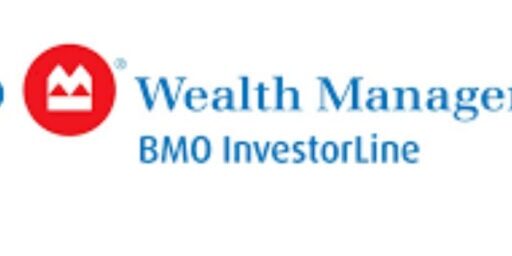


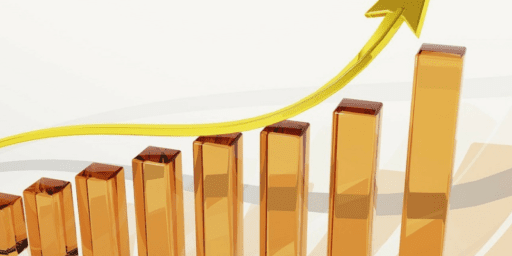

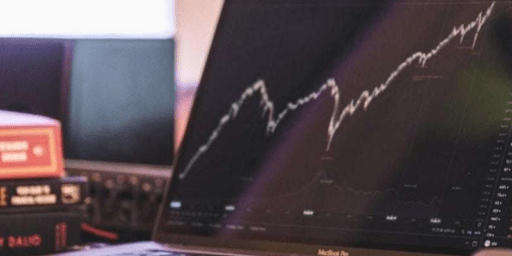
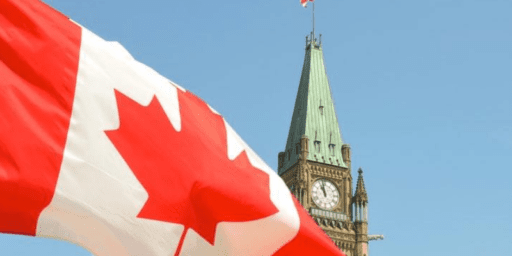
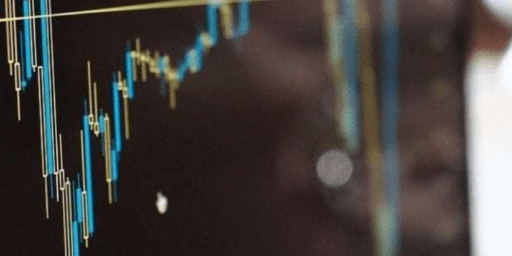

Now I wish I had actually taken your “advice” and sold out back in March.
I am 74, a widower. Between my company pension, RIFF and dividends I have lost my OAS .
My average tax rate is 26% My marginal tax rate is 36%. Should I stay in the higher tax bracket pay the taxes and look for even more dividends. I realise I have not provided the numeric details. My pension and dividends are about the same. My RIFF income is 1/2 of my pension.
Should I ignore a rising tax bracket, just pay the taxes and look for even more dividends? Means assuming I will do better financially instead of getting out of investing for dividends in my non registered account.
This is something I can use advice on. How can I compute being better off growing my dividends despite the rising tax bracket. If so this is the time to buy the companies that pay good dividends and will always cope and recover from disruptions, like we currently face.
Thanks
Dennis
Dennis, you probably don’t lose all you OAS. Since you are already in the OAS clawback range dividends will only compound that issue as they are grossed up, assuming a taxable account. Capital gains are more efficient. However, prudence might be a better course of action. Doesn’t seem like you need the extra income so why risk what you have now. Enjoy your money, take less risk.
actually the advice of selling before the drop of 20-30% would not have been bad but would require a crystal ball. I’ve just been averaging down. It’s worked okay but I haven’t got the absolute low.
MDJ –
Bingo. Stay consistent and invest in smart, safe, dividend producing stocks.
-Lanny
Great article. I like your writing style.
If you are really young, then not selling might make sense (although you should remember Buffett’s # 1 rule : never lose money !). As a retired person in my middle 60’s, I sold out in May 2019, sensing the market was extended. A person nearing retirement cannot afford to be caught in a vicious bear market because long-term for that individual usually means he is going to be six feet under when te market recovers. Japan 1989 to this day is a striking reminder of that. So, yes, selling at the very beginning of this downturn was the right thing to do. Now, at -25 or -30% it is not as clear or easy to figure out what to do. The market might stage a V-shaped recovery (doubtful in my opinion) or drop to -40, -50, -60% or more… No one knows. Bear markets are catastrophic if you need your money in the next 10 years or less. Food for thought. May be one cannot time the market, but one should definitely be able to sense a major trend reversal and quickly act accordingly to avoid being caught in a steep downward spiral.
John – if CV-19 had not hit, the market would be humming along and you’d have missed out a fantastic 10-month stretch. Knowing your risk tolerance is one thing, deciding to time the market so drastically is another. I’m glad it worked out for you, but for readers out there, I certainly wouldn’t advocate this approach under any circumstances. Someone that is currently 65 can expect to live 20 more years according to Stats Canada – that’s a pretty decent stretch of time if you want some equity exposure!
I am two years from retirement. I also made the assessment that the market was very high and trimmed my asset allocation. Buy and hold is garbage when you are withdrawing funds in retirement. The math doesn’t work, and it causes too much stress. Retirees need to be more conservative. Anyway, I bought in at a lower price, but only with 30% of my allocated equity funds. As long as I buy back in prior to where I cashed out I am ahead. Even if I don’t I am more secure in the knowledge I have 30% of my equity funds already in the market at a 25% discount. I can afford to wait on the side lines now with minimum risk. Buy and hold is not the only way to proceed. Markets don’t go down 20% and roar back in two months, there is time to plan without subjecting yourself to high stress in retirement. This event was fairly obvious to anyone tracking the news. Buy and hold was not a good strategy in this recession. My opinion, based on a bit of real life practicality, not an advisors go to for customers. Advisor makes money, you take the stress.
Paul – the math just doesn’t support this line of reasoning. Please read our withdrawal rates article – which clearly shows that mathematically speaking, buy and hold strategies offer the most positive range of long-term outcomes for investors – on average. Now if you can’t sleep – that’s a long-term asset allocation question, not a market timing question. Think about the realities of the position you’re taking here. You’re saying that you know better than collective wisdom of the world’s sharpest people, because you “track the news”? Your asset allocation should allow to sleep at night at all times. If you felt a rush to sell as soon as a down market hit, then you had too high an equity exposure to begin with.
I agree in the long run, this is just going to be another blip. In the short term, there are opportunities to make money shorting the market / buying puts. I would not recommend gambling the whole portfolio on such a strategy and blowing up entire life savings, but I keep a small % of my funds to risk on the short term.
Not sure I can beat that but I do have two questions. Firstly what is a rocket surgeon? Secondly, why are people stocking up on toilet paper when this is a respiratory disease, not a bowel disease? I swear people’s heads are in their ass
As well as this being a disease that’s airborne spread, it’s also spread by feces.
Hey Brian,
A Rocket Surgeon is my attempt at being witty (squishing together the two common metaphors of “brain surgeon” and “rocket scientist” – clearly my attempt failed ;)
Good article, but I wonder how many people thought you were serious, stopped after the first few paragraphs, and then acted on the ‘advice’?
Agree, there’s no need to freak out. Invest for the long run. Companies will continue to make money in the long run.